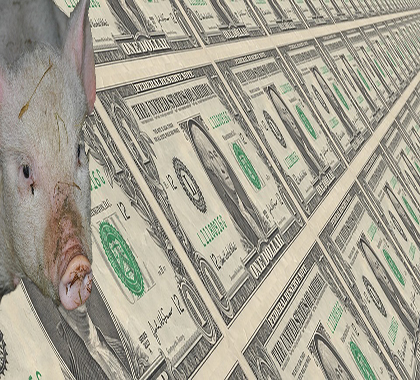Speaker of the House Paul Ryan (R-WI) stopped a recent effort by a group of Republican lawmakers to encourage spending taxpayers’ money on representatives’ pet projects.
In November 2016, Reps. John Culberson (R-TX), Mike Kelly (R-PA), Mike Rogers (R-AL), and Tom Rooney (R-FL) proposed restoring federal lawmakers’ ability to propose earmarks, legislative language added to bills allocating a specified amount of money for specific projects, programs, or organizations.
In November 2010, U.S. Rep. John Boehner (R-OH) enacted rules prohibiting lawmakers from inserting earmark spending into bills.
Ryan intervened in a closed-doors caucus meeting of the House Republican Caucus in November 2016, urging lawmakers to reject Culberson’s proposal. In return for an immediate rejection, Ryan pledged to request a public congressional hearing on the future of the earmark ban at some point between January and March.
‘Deserves a Lot of Credit’
Curtis Kalin, a spokesman for Citizens Against Government Waste, says Ryan is fighting for taxpayers and against wasteful government spending.
“Speaker Ryan deserves a lot of credit for halting the plan before it was set to pass in a secret meeting,” Kalin said. “He showed strong leadership in forcing transparency and accountability on this critical issue. He says he wants the debate on earmarks to be public, which is laudable. Taxpayers deserve to know where each member of Congress stands on bringing back pork-barrel politics from a bygone era.”
‘Essentially Bribing’ One Another
Kalin says it should be more difficult for lawmakers to pass huge spending bills, not easier.
“If Congress cannot function without using taxpayer dollars to bribe each other, then Congress has much bigger problems. It’s both a bad way to budget and a bad way to spend the taxpayers’ money. It’s essentially bribing other members of Congress with our money. By making it easier to pass large, controversial spending bills, earmarks aid in the overspending that created the nearly $20 trillion debt.”
Horse-Trading for Huge Bills
Thomas Binion, director of policy outreach for The Heritage Foundation, says earmarks were often used by lawmakers to push bad ideas.
“If you take an already huge, bloated spending bill that doesn’t have majority support, and you add a few earmarks, and members are then willing to vote for a bill that has their chosen earmark in the bill, you’ve now passed a massive spending bill that wouldn’t have had the votes otherwise. It’s a tool used to get bills across the finish line that otherwise, on their merits, wouldn’t. When it’s said that earmarks are, in part, responsible for the out-of-control spending, not only is it the actual spending in the actual earmark, it’s also all of the spending that earmarks were used to leverage.”
Binion says Ryan’s move provides time for a debate on the issue.
“One of the things the delay does is to create time for the debate, which makes space for the public and the various stakeholders to make their opinions known,” Binion said. “We know how that went the first time. The first time the earmark regime was exposed to the public, there was an outcry, and the ban was put in place. I think we’re going to see a similar response from stakeholders in Washington, DC and in the grassroots around the country.”
Binion says the debate is itself a transparency measure.
“I think there’s an advantage for those who want to extend the earmark ban: The longer the debate goes, the greater advantage they have,” Binion said. “Of course, the way bad things are done in Washington, DC is in the dark of night, behind closed doors. When you bring them out into the light, it becomes much less likely that they will happen.”




